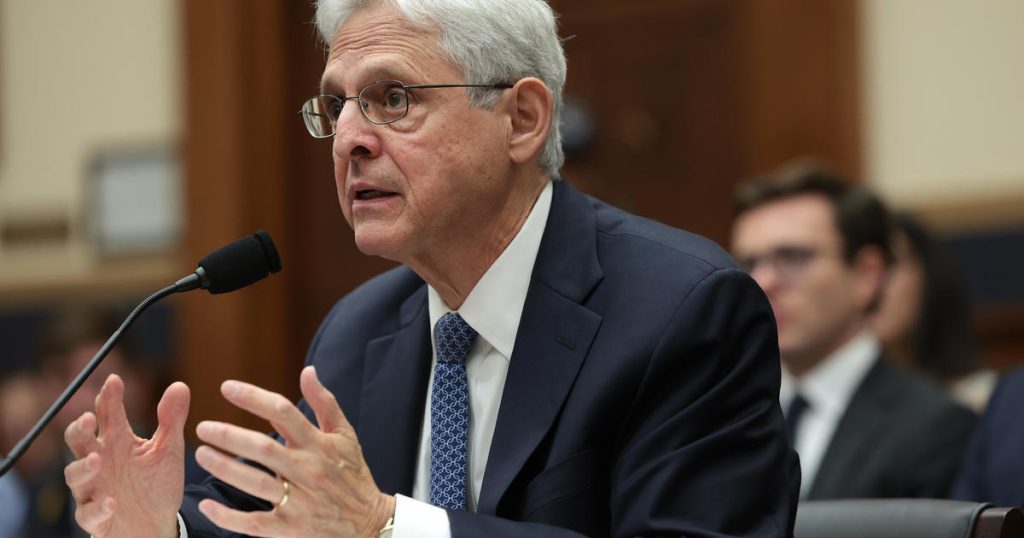Two Republican-led House committees are considering a contempt of Congress resolution against Attorney General Merrick Garland for defying their request for audio recordings related to a classified documents case against President Biden. The committees are moving forward with the markups after the Justice Department declined to provide an audio recording of former special counsel Robert Hur’s interview with the president, part of an investigation into Biden’s handling of classified documents. While Hur’s report ultimately vindicated the president, it included critical conclusions prompting the committees to subpoena the audio recording and related materials.
The Justice Department provided transcripts but declined to hand over the audio recording, citing concerns that the request may be politically motivated and could have a chilling effect on future investigations. Despite this, the committee leaders pushed ahead, arguing that the recordings were essential to their investigation into Biden’s handling of classified documents and his suitability as president. The committees believe that the material would aid in determining if there are grounds for drafting articles of impeachment against President Biden, as part of the House’s impeachment inquiry.
The resolution being considered by the committees aims to hold Garland in contempt of Congress for defying the subpoena, with potential consequences including referral to the U.S. attorney in Washington for possible prosecution. If the resolution advances and the GOP-controlled chamber votes to hold Garland in contempt, he would join a short list of Cabinet members who have faced similar actions. The committees argue that the audio recordings hold superior evidentiary value compared to the transcripts, as they provide verbal and nonverbal context that is crucial for a full understanding of the interview.
In a 345-page report released by Hur in February, he outlined Biden’s handling of classified documents and raised concerns about national security risks. However, Hur determined that pursuing criminal charges against Biden was not appropriate, as the evidence did not meet the threshold for establishing a violation of the law. The report also included observations about Biden’s memory, with one notable example being the president’s difficulty in recalling the year that his son died. Hur’s report faced criticism from both Republicans and Democrats, with GOP members questioning the decision not to recommend charges and Democrats challenging the characterization of Biden’s memory.
Hur testified before the House Judiciary Committee in March, where he defended his conclusions and the decision not to recommend charges against Biden. He stated that it was not his role to dictate what information Congress should have access to, emphasizing that the audio recordings were part of the evidence considered in his investigation. The ongoing dispute between the House committees and the Justice Department highlights broader tensions between Congress and the executive branch, particularly on issues related to oversight of investigations and potential impeachment proceedings.


